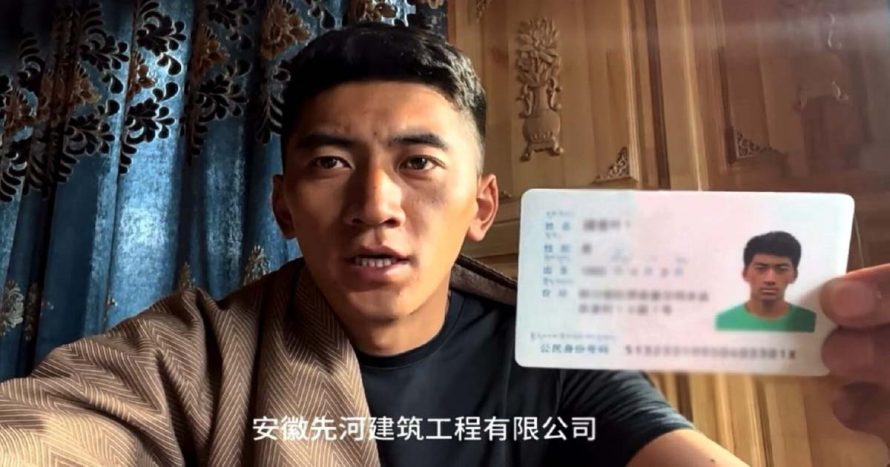
On 8 July, the Chinese government released Tibetan environmental activist Tsongon Tsering, a 30-year-old Tibetan from Tsaruma (ཚ་རུ་མ། , Chinese: Chá’ěrmǎ) Township, Kyungchu (ཁྱུང་མཆུ།, Ch: Hongyuan) County, Ngaba and Qiang Tibetan Autonomous Prefecture (TAP), Sichuan, who spoke out about illegal sand mining on the Dangchu (རྡང་ཆུ་གཙང་པོ།) River’s ecosystem, a tributary of the Yellow River. Although he is reportedly emaciated, his health status has not yet been thoroughly examined. On the day of his release, despite restrictions from the Chinese government, the villagers from Tsaruma gathered to welcome him home and held a celebration.
“We welcome the news of Tsongon Tsering’s release. However, the Chinese government must ensure Tsering receives appropriate medical care and attention as he recovers from malnutrition and harsh treatment in prison. We call on the Chinese authorities to allow Tsering, his family, and community to live with dignity, without constant surveillance and restrictions on freedom of movement. No Tibetan should be persecuted for peacefully raising the alarm on environmental pollution and degradation in their home. Tibetans remain the best-placed and most equipped custodians of their lands. Their right to express concerns should be protected, said International Campaign for Tibet (ICT) President Tencho Gyatso.”
According to sources close to the ICT, when the Chinese government released Tsongon Tsering, they imposed strict controls. These included prohibiting him from participating in social activities, forbidding him from attending public gatherings, and revoking his political rights. Furthermore, on the day of his release and return to his home, officials from Tsaruma Township reportedly came and issued orders to residents not to organize a grand welcome or celebration. However, the community defied these orders to welcome and celebrate him. Officials enforced strict bans on photos or videos of the celebrations.
Tsongon Tsering exposé on illegal sand mining
Tsongon Tsering’s videos exposing illegal sand and gravel mining in his native Tsaruma hometown began circulating widely on Chinese social media around 15 October of last year. The video identified Anhui Xianhe Construction Company Limited as the perpetrator of the environmental damage and also showed him holding his ID card while providing video evidence of sand mining and environmental damage in Tsaruma.
On 20 October 2024, Chinese authorities arrested and interrogated Tsering before sentencing him on 7 November to 8 months detention for reportedly engaging in “intentional injury”. According to the Chinese government’s response to a UN urgent letter requesting information and caution on Tsering’s case, Tsongon Tsering was involved in a physical altercation with an individual affiliated with the Anhui Xianhe Construction Company Ltd. However, observers believe the charges were politically motivated, intended to silence Tsering and prevent further activism, which authorities labelled as “inciting social unrest” and “subverting the state”. The alleged physical altercation occurred on 15 October 2023, one year before Tsongon Tsering posted his complaint video on Chinese social media in mid-October 2024. Only after the video went viral did the county procuratorate charge him with intentional injury, leveraging the statute of limitations for proceedings before the county court. On 20 January, 2025, Tsering’s appeal was rejected, and his sentence was upheld by the Intermediate People’s Court of Ngaba Prefecture. He was serving his sentence in the Ngaba County Detention Facility, in Ngaba and Qiang TAP, Sichuan Province, until his recent release.
Tsongon Tsering is recognized as an educated and socially conscious community member. After completing his higher education studies and specializing in Tibetan language, he refused to take up work that prioritized Chinese language, even if it offered better prospects. During school winter breaks, he also volunteered as a Tibetan language teacher for Tibetan students.